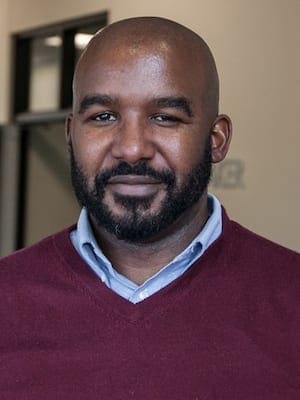Through the actions of one reprehensible person, our nation has been reminded that evil is alive and well.
Understandably, this unconscionable act of killing nine people during a Bible study at Emanuel African Methodist Episcopal Church in Charleston, South Carolina, has shaken many people.
When senseless violence occurs, it’s natural for us to respond with emotions that come from a place of deep hurt and legitimate confusion.
We mourn the victims who died while simultaneously struggling with questions that many of us have had to ask all too frequently. These questions include:
- If God is so loving, why would something like this be allowed to happen?
- Why would God permit people who spent their lives in service to their faith and community die in such unnecessary ways?
- Why are people who have such immense hate in their hearts allowed to do the things that they do?
- Why are human hearts so evil in the first place?
Although we may not fully know or understand the motives of the man who shot and killed these innocent people, we are reminded of two truths that are relevant to the incident.
First, racism is still an ever-present cancer within our society.
Second, sacred and holy spaces are not immune to acts of violence.
This incident ensures that our collective communities will engage in conversations around points that need to be addressed if our nation is to ever fully realize the collective potential that we have.
One of the obvious challenges continues to be making more significant progress related to race relations so that ethnic groups don’t see each other as enemies simply because of skin color.
Another challenge is the need to address the proliferation of groups that exist to maintain racial tensions and how they are able to operate freely and unfettered.
The fruits of these conversations may not be visible any time soon, but I believe that they will come.
In addition to adding a sense of urgency to our conversations about race, this tragedy reminds those of us in leadership within faith communities of our opportunities to participate in the process of protecting those that we serve.
As a former police officer, I have previously written about the potential for violence to occur within churches. In light of this week’s shooting, I believe that it is appropriate to restate some of those ideas.
Leaders and congregations should be realistic about the fact that violence can occur at their properties, whether the church is located in an urban or suburban area.
Violence knows no boundaries. Therefore, leaders and congregations have to begin preparing for potential situations of violence by talking publicly about it.
This can occur from the pulpit, the church website or Facebook page, and in church bulletins.
Also, a proactive plan of response has to be developed. The following points can be used as a foundation:
- There should be a designated staff member or volunteer who helps to keep track of visitors when they are present in your facilities. Additionally, staff and volunteers should be equipped with means to communicate with each other in case an incident occurs.
- Install and regularly use a video or intercom system to monitor who enters and exits the building.
- Develop a firearm policy for your church that takes into account state and local laws. Post the policy to the church website, within bulletins and in the church office.
This is not an attempt to advocate for the use of a gun, but acknowledgement of the reality that some members may bring firearms with them on a regular basis and the church needs to be protected in case a member uses one on church property.
- Engage local law enforcement with the intent of building an intentional relationship between them and your congregation. This can lead to them having a regular presence when you have a service or events and can potentially deter someone from attempting to harm members.
None of these suggestions is a guarantee against something going wrong at your church.
But, implementing these suggestions prayerfully will put congregations in a better position to protect themselves while still being salt and light to the world.
 Terrell Carter is a staff member for Central Baptist Theological Seminary and an associate with Pinnacle Leadership Associates. He is the author of “Walking the Blue Line: A Police Officer Turned Community Activist Provides Solutions to the Racial Divide” and the forthcoming book, “Machiavellian Ministry: What Faith-Filled Leaders Can Learn from a Faithless Politician.” His writings can be viewed at his website, and you can follow him on Twitter @tcarterstl.
Terrell Carter is a staff member for Central Baptist Theological Seminary and an associate with Pinnacle Leadership Associates. He is the author of “Walking the Blue Line: A Police Officer Turned Community Activist Provides Solutions to the Racial Divide” and the forthcoming book, “Machiavellian Ministry: What Faith-Filled Leaders Can Learn from a Faithless Politician.” His writings can be viewed at his website, and you can follow him on Twitter @tcarterstl.
A pastor, author and educator living in St. Louis, Missouri, he is the author of several books, including The Gospel According to Broadway and Taking Apart Bootstrap Theology: Gospel of Generosity and Justice.

